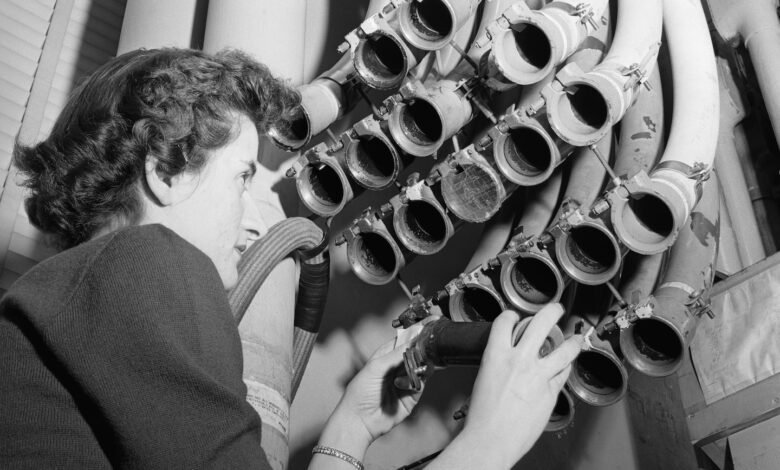Social Security discards obsolete employment data used to deny disability claims

Commissioner Martin O’Malley’s decision to discard federal labor market data, some of which was last updated 47 years ago, follows a Washington Post investigation in December 2022 that revealed how the antiquated list of jobs was preventing many claimants who couldn’t work from receiving vital monthly disability checks.
“These were egregious examples of our inability to keep up,” O’Malley said in an interview. Reliance on obsolete jobs “undermines confidence in the rest of the process” of applying for disability benefits.
With many benefits decisions depending on whether claimants can still work, the job listing was a crucial element for administrative law judges considering appeals. “Industrial economies change and jobs disappear. We hadn’t removed them,” O’Malley said.
The change will be an immediate improvement in an already difficult process, lawyers and advocates said.
“This is going to be a really big deal for disability claimants,” said Kevin Liebkemann, a disability lawyer in New Jersey who has written extensively about Social Security’s use of vocational data and in recent months has worked with colleagues to present proposals to O’Malley to change the system, including eliminating obsolete jobs from consideration.
“I could tell you stories about the psychological impact it has on disability claimants when they find out they lost their claim because they waited years, because someone told them they could do a job that doesn’t exist,” Liebkemann said.
The job list has been used for decades as part of Social Security’s process for evaluating disability benefits applicants’ ability to work. As they review claims, officials must assess whether there is work “in meaningful numbers” that a candidate can still do.
The agency has long trusted in a vast publication known as the Dictionary of Occupational Titles for this review – but most of its 12,700 qualified and unqualified entries, many of which were last updated in 1977. That database ended up on the list of high-risk government programs compiled by the Government Accountability Office, which highlights programs and operations that are vulnerable to waste, fraud, abuse or mismanagement, or in need of transformation.
The Department of Labor, which originally compiled the index, abandoned it 33 years ago in a sign of the economy’s shift from industrial production to information and services. But Social Security vocational experts routinely cited some 137 unskilled and sedentary jobs on the list, including reptile breeder, bank pin adjuster and barrel fitter. deny benefit claims. For a long time now, functions have been mainly transferred abroad or replaced by machines.
In 2012, Social Security hired the Bureau of Labor Statistics to develop a modern list of occupations and their characteristics. The project cost about $300 million in ongoing annual payments of $30 million. Although the data is public, the agency does not yet use it.
Social Security will eliminate 114 occupations from the old database on Monday. Now, authorities will not cite jobs as log climber or watch repairman.
Another 13 positions whose use has led Social Security to lose numerous cases in federal court will now require strict justification to be cited as options for an applicant to work.
Although the occupations now out of question were the most frequently cited for denying benefits, the Dictionary of Occupational Titles includes a total of 3,127 unskilled jobs, including many that are non-sedentary and that will likely remain in use for the foreseeable future, disability advocates said.
O’Malley also said Social Security will not yet make the switch to the state-of-the-art system compiled by the Bureau of Labor Statistics, as many advocates have called for, because it requires more study.
“That’s the direction we’re going,” he said.
Members of Congress, especially Republicans, pressured him to “look for more cost-effective ways” to maintain the occupations survey “at a reasonable cost,” O’Malley said. He could not say when the agency will begin using the new system, which will require a lengthy regulatory process and staff training.
Job data It has long raised political sensitivities for a program that has sparked criticism that the government is too generous or not generous enough in granting benefits.
Disability advocates asserted that moving to a modern list of occupations would likely lead to higher rates of approval of claims. But conservatives, including former Trump administration officials who unsuccessfully pushed for the disability program to begin using the modern job listing, have argued that many people with disabilities can do a range of modern jobs on computers that actually , would lead to the denial of further benefits.
Some advocates have warned that the changes to be announced Monday are too gradual to fix a long-broken process.
“Simply strike in the occupations of [Dictionary of Occupational Titles] It’s a political solution to a technical problem,” said David Weaver, a former Social Security official. associate commissioner who helped lead the initial modernization effort. Weaver said many cases are pending in federal courts where Social Security has “denied thousands and thousands of disability claimants using occupations it plans to attack.”
It was not immediately clear how Social Security would approach these ongoing cases that relied on outdated employment data.
The agency continued to face questions about the Bureau of Labor Statistics’ expensive new system last week from Republican senators on the Senate Finance Committee.
“It is essential for Social Security [use of outdated occupational data] be removed from our high-risk list,” Sen. Mike Crapo (Idaho), the top Republican on the finance committee, said at a hearing on work and disability benefits, referring to the GAO list. “If they can leverage modern data, they can get better results for recipients and save money in the process.”
correction
An earlier version of this article misstated the number of outdated jobs that Social Security removed from the Dictionary of Occupational Titles. He removed 114 positions. The article has been corrected.




